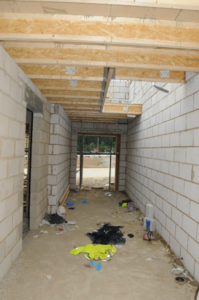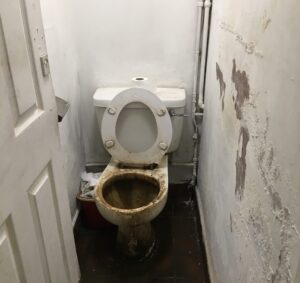Chemical company, Briar Chemicals Ltd, has been fined £1million after a man died in an explosion at its site in Sweet Briar Road, Norwich.
Chelmsford Magistrates Court heard how on the 27 July 2018, maintenance contractor, Rob Cranston, aged 46, was carrying out repair work on a mixing vessel during a planned period of shutdown maintenance. It is thought that his welding torch or grinder accidentally ignited flammable Toluene vapour inside the vessel which should not have been present when the work commenced. Mr Cranston’s son Owen, aged 22, was working alongside his father when Mr Cranston was killed in the blast.
The HSE investigation found that a quantity of Toluene residue had been left inside the vessel after shutdown cleaning at the beginning of June 2018. Two damaged valves situated above the vessel in the Toluene supply pipe, were also found to be leaking. Operatives had been instructed to transfer a large quantity of Toluene from one storage tank to another via this pipe which allowed additional flammable liquid to leak into the vessel which was supposed to be empty and clean.
In a Victim Impact Statement read out in court, Mr Cranston’s widow, Claire, said:
“We married on 16 August 2003; he would have been 50 years old this year. He was so well-known and liked. I had his funeral at the Norwich Cathedral, there were over 750 people in attendance.
“This has obviously been horrendous for both our sons, particularly Owen having to deal with actually being there at the time. Our lives changed forever that day. We will never forget him and are only left wondering what the future would have held for us all together. We were still young enough to have had years of happiness ahead. He will miss seeing our sons’ lives develop and grandchildren in years to come.”
Briar Chemicals Ltd failed to take all necessary measures to prevent the explosion and pleaded guilty to a breach of Regulation 5 of the COMAH Regulations 2015. The company was fined £1million and ordered to pay costs of £10,967.20.
Speaking after the hearing, HSE inspector Mrs F Bailey, who led the three-year investigation, commented:
“This was a complex and highly technical investigation, due to the chemical hazards on site and the number of underlying issues which combined to cause the explosion. HSE hope that this case helps to communicate important safety messages to wider industry so that other fires and explosions are prevented in future.
“Any company handling or storing flammables should consider the potential risk of fire and explosion and ensure they have robust procedures in place to minimise and control risk at all times, including during planned maintenance work.”
Notes to editors
- The Health and Safety Executive (HSE) is Britain’s national regulator for workplace health and safety. We prevent work-related death, injury and ill health. It does so through research, information and advice, promoting training; new or revised regulations and codes of practice, and working with local authority partners by inspection, investigation and enforcement. gov.uk[1]
- The Control of Major Accident Hazards Regulations 2015 (‘COMAH’) main aims are to prevent and mitigate the effects of major accidents involving dangerous substances which can cause serious damage/harm to people and/or the environment. COMAH mainly affects the chemical industry, but also some storage activities, explosives sites, nuclear sites and other industries, where threshold (and above) quantities of dangerous substances identified in the regulations are kept or used.
- COMAH Regulation 5(1) Every employer must take all measures necessary to prevent major accidents and limit their consequences to human health and the environment.
- More about the legislation referred to in this case can be found at: legislation.gov.uk[2]
- HSE news releases are available at http://press.hse.gov.uk

